Last week, we talked about the beginning of Siddhartha’s journey. The young man leaves his village and with it a safe life as a high-caste member of his society, a future priest or scholar. Together with his friend Govinda, he follows a group of begging ascetics into the wilderness, where they stay for three years, learning the arts and skills needed to survive with nothing: fasting, meditating, punishing the body, getting rid of its desires. But at the end of this time, Siddhartha realises that just killing the ego and closing one’s eyes to the world cannot be all that there is to the ultimate wisdom.
At the same time, news of the Buddha reach them. They leave the ascetics to go and find the Buddha and to hear his teaching. When they find the wise man, Govinda, Siddhartha’s friend, decides to stay as a monk in the Buddha’s community. Siddhartha is still not convinced. In a meeting between the young man and the old teacher, Siddhartha makes the point that the Buddha himself clearly did not become enlightened by following Buddhist teachings. His enlightenment came as a consequence of the life he had led, his experiences and his thoughts about the world. It was lived rather than learned wisdom that made the Buddha himself — and this is also the path that Siddhartha wishes to follow. He leaves his friend with the other monks and leaves, now alone, to find his destiny:
Out of this moment, when the world melted away all around him, when he stood alone like a star in the sky, out of this moment of a cold and despair, Siddhartha emerged, more a self than before, more firmly concentrated. He felt: This had been the last tremor of the awakening, the last struggle of this birth. And it was not long until he walked again in long strides, started to proceed swiftly and impatiently, heading no longer for home, no longer to his father, no longer back.
…And here’s the same post as a video with all the images and dozens more! Read on, the story continues below!
Kamala
Siddhartha now wanders alone along the dusty road, without a goal, without knowing where he’s going, except that he won’t return back. Not to his family, not to his friend, not to the teachings of the Buddha. Whatever it is he’s looking for, it will be something new, an experience he has not yet had.
Siddhartha learned something new on every step of his path, for the world was transformed, and his heart was enchanted. He saw the sun rising over the mountains with their forests and setting over the distant beach with its palm-trees. At night, he saw the stars in the sky in their fixed positions and the crescent of the moon floating like a boat in the blue. He saw trees, stars, animals, clouds, rainbows, rocks, herbs, flowers, stream and river, the glistening dew in the bushes in the morning, distant high mountains which were blue and pale, birds sang and bees, wind silverishly blew through the rice-field. All of this, a thousand-fold and colourful, had always been there, always the sun and the moon had shone, always rivers had roared and bees had buzzed, but in former times all of this had been nothing more to Siddhartha than a fleeting, deceptive veil before his eyes, looked upon in distrust, destined to be penetrated and destroyed by thought, since it was not the essential existence, since this essence lay beyond, on the other side of, the visible. But now, his liberated eyes stayed on this side, he saw and became aware of the visible, sought to be at home in this world, did not search for the true essence, did not aim at a world beyond. Beautiful was this world, looking at it thus, without searching, thus simply, thus childlike. Beautiful were the moon and the stars, beautiful was the stream and the banks, the forest and the rocks, the goat and the gold-beetle, the flower and the butterfly. Beautiful and lovely it was, thus to walk through the world, thus childlike, thus awoken, thus open to what is near, thus without distrust.
We see here Siddhartha’s journey taking shape. The first step was leaving his father’s home and the certainties of his pre-planned, safe life. The second step was the freeing of his mind from the body, the ability to control his body and to make it follow his will. And now, in this third stage, he realises that the world out there is not just illusion, not random images that should be transcended, but something that might contain inherent meaning, a message, a secret. And he perceives himself as part of that world that waits to be explored and understood:
All of this had always existed, and he had not seen it; he had not been with it. Now he was with it, he was part of it. Light and shadow ran through his eyes, stars and moon ran through his heart.
This is a quintessentially romantic way of viewing the world: everything that exists is a cipher, a code, a secret pointer to something else, to a realisation that transcends words. The German poet Novalis (1772-1801) gave this sentiment its perhaps clearest expression:
Mankind travels along manifold pathways. He who pursues and compares them will perceive the emergence of certain strange figures; figures that appear to be inscribed in that massive tome composed in cipher that one everywhere and in everything beholds: on wings, eggshells, in clouds, in the snow, in crystalline and stone formations, in freezing waters, on the skins and in the bowels of mountain-ranges, of plants, beasts, people, in the stars of the heavens, in contiguous and expansive panes of pitch and glass, in the clustering of iron filings around the magnet, in the extraordinary ebb and flow of contingency. In these one may glimpse an intimation of the key to this wondrous text, its very grammar-book; and yet the intimation refuses to accommodate itself to fixed forms and appears to begrudge any translation into a higher key... (Novalis, The Novices at Sais, translation by Douglas Robertson, used with permission.)
Hesse was himself a late romantic, just like Novalis. And his Siddhartha is driven by the same hunger for meaning, the same thirst for a life that is more than what it appears to be.
One night, Siddhartha sleeps in the hut of a ferryman by a river. In the morning, the ferryman takes him across.
The ferryman got him across the river on his bamboo-raft, the wide water shimmered reddishly in the light of the morning.
“This is a beautiful river,” he said to his companion.
“Yes,” said the ferryman, “a very beautiful river, I love it more than anything. Often I have listened to it, often I have looked into its eyes, and always I have learned from it. Much can be learned from a river.”
And the ferryman predicts that Siddhartha, who does not have any money and cannot pay for his passage, will one day return to pay him.
“Do you think so?” asked Siddhartha amusedly.
“Surely. This too, I have learned from the river: everything is coming back! You too, Samana, will come back. Now farewell! Let your friendship be my reward. Commemorate me, when you’ll make offerings to the gods.”
Later, Siddhartha reaches the outskirts of a city. There, he sees many people and among them a rich woman in a sedan chair, at the entrance of a beautiful garden:
Siddhartha stopped at the entrance to the pleasure-garden and watched the parade, saw the servants, the maids, the baskets, saw the sedan-chair and saw the lady in it. Under black hair, which made to tower high on her head, he saw a very fair, very delicate, very smart face, a brightly red mouth, like a freshly cracked fig, eyebrows which were well tended and painted in a high arch, smart and watchful dark eyes, a clear, tall neck rising from a green and golden garment, resting fair hands, long and thin, with wide golden bracelets over the wrists.
Siddhartha saw how beautiful she was, and his heart rejoiced. He bowed deeply, when the sedan-chair came closer, and straightening up again, he looked at the fair, charming face, read for a moment in the smart eyes with the high arcs above, breathed in a slight fragrant, he did not know. With a smile, the beautiful woman nodded for a moment and disappeared into the grove, and then the servants as well.
But Siddhartha realises that, as long as he looks like a beggar from the wilderness, he will not be able to make this woman’s acquaintance:
I am still a Samana, he thought, I am still an ascetic and beggar. I must not remain like this, I will not be able to enter the grove like this. And he laughed.
So he goes into the city, befriends a barber, and manages to get a haircut and a shave for free. He washes in the nearby river, and the next day, clean and with his hair oiled, he goes again to meet the woman, the famous courtesan Kamala. This time, Kamala stops and talks to him.
“Never before this has happened to me, my friend, that a Samana from the forest came to me and wanted to learn from me! Never before this has happened to me, that a Samana came to me with long hair and an old, torn loincloth! Many young men come to me, and there are also sons of Brahmans among them, but they come in beautiful clothes, they come in fine shoes, they have perfume in their hair and money in their pouches. This is, oh Samana, how the young men are like who come to me.”
“Already I am starting to learn from you,” said Siddhartha. “Even yesterday, I was already learning. I have already taken off my beard, have combed the hair, have oil in my hair. There is little which is still missing in me, oh excellent one: fine clothes, fine shoes, money in my pouch. You shall know, Siddhartha has set harder goals for himself than such trifles, and he has reached them.”
Still, Siddhartha is new in this city, and he doesn’t know where to go next. So he asks Kamala for advice.
“Dear Kamala, thus advise me where I should go to, that I’ll find these three things most quickly?”
“Friend, many would like to know this. You must do what you’ve learned and ask for money, clothes, and shoes in return. There is no other way for a poor man to obtain money. What might you be able to do?”
“I can think. I can wait. I can fast.”
“Nothing else?”
This list of the three skills of the Samana will come up again later on in the book. It is what he learned in the wilderness: thinking, waiting, fasting. Later, a potential employer, a rich businessman, will ask him what these skills are good for. What benefit could one possibly get from thinking, waiting fasting?
“I can think. I can wait. I can fast.”
“That’s everything?”
“I believe, that’s everything!”
“And what’s the use of that? For example, the fasting — what is it good for?”
“It is very good, sir. When a person has nothing to eat, fasting is the smartest thing he could do. When, for example, Siddhartha hadn’t learned to fast, he would have to accept any kind of service before this day is up, whether it may be with you or wherever, because hunger would force him to do so. But like this, Siddhartha can wait calmly, he knows no impatience, he knows no emergency, for a long time he can allow hunger to besiege him and can laugh about it. This, sir, is what fasting is good for.”
But Siddhartha can also read and write, and these are skills that not everyone has in ancient India. So the rich merchant, a client of Kamala’s, who agreed to give Siddhartha a chance, hires him to help out in his office. And when the day’s work is done, he goes back to Kamala, now in the possession of money, shoes and clothes.
He was not in Kamaswami’s house for long, when he already took part in his landlord’s business. But daily, at the hour appointed by her, he visited beautiful Kamala, wearing pretty clothes, fine shoes, and soon he brought her gifts as well. Much he learned from her red, smart mouth. Much he learned from her tender, supple hand. Him, who was, regarding love, still a boy and had a tendency to plunge blindly and insatiably into lust like into a bottomless pit, him she taught, thoroughly starting with the basics, about that school of thought which teaches that pleasure cannot be taken without giving pleasure, and that every gesture, every caress, every touch, every look, every spot of the body, however small it was, had its secret, which would bring happiness to those who know about it and unleash it.
In the beginning, Siddhartha is still very much the detached ascetic from the forest. He is playing the game of business and money, but his heart is not in it. Kamaswami, his boss, complains to a friend that Siddhartha lacks the proper enthusiasm:
“This Brahman,” he said to a friend, “is no proper merchant and will never be one, there is never any passion in his soul when he conducts our business. But he has that mysterious quality of those people to whom success comes all by itself, whether this may be a good star of his birth, magic, or something he has learned among Samanas. He always seems to be merely playing with our business-affairs, they never fully become a part of him, they never rule over him, he is never afraid of failure, he is never upset by a loss.”
The friend advised the merchant: “Give him from the business he conducts for you a third of the profits, but let him also be liable for the same amount of the losses, when there is a loss. Then, he’ll become more zealous.”
Kamaswami followed the advice. But Siddhartha cared little about this. When he made a profit, he accepted it with equanimity; when he made losses, he laughed and said: “Well, look at this, so this one turned out badly!”
Years pass, in which Siddhartha keeps conducting business, earning money, being successful, and visiting Kamala for lessons in love.
Once, he said to her: “You are like me, you are different from most people. You are Kamala, nothing else, and inside of you, there is a peace and refuge, to which you can go at every hour of the day and be at home at yourself, as I can also do. Few people have this, and yet all could have it.”
“Not all people are smart,” said Kamala.
“No,” said Siddhartha, “that’s not the reason why. Kamaswami is just as smart as I, and still has no refuge in himself. Others have it, who are small children with respect to their mind. Most people, Kamala, are like a falling leaf, which is blown and is turning around through the air, and wavers, and tumbles to the ground. But others, a few, are like stars, they go on a fixed course, no wind reaches them, in themselves they have their law and their course....”
Kamala looked at him with a smile. “Again, you’re talking about him,” she said, “again, you’re having a Samana’s thoughts. ... You are the best lover,” she said thoughtfully, “I ever saw. You’re stronger than others, more supple, more willing. You’ve learned my art well, Siddhartha. At some time, when I’ll be older, I’d want to bear your child. And yet, my dear, you’ve remained a Samana, and yet you do not love me, you love nobody. Isn’t it so?”
“It might very well be so,” Siddhartha said tiredly. “I am like you. You also do not love — how else could you practise love as a craft? Perhaps, people of our kind can’t love. The childlike people can; that’s their secret.”
Sansara
Years pass, and Siddhartha, using his skills of thinking, waiting and fasting makes his way in the world. He has his own house, his own servants, money and power. But he has no friends, except for Kamala.
That high, bright state of being awake, which he had experienced that one time at the height of his youth, in those days after Gotama’s sermon, after the separation from Govinda, that tense expectation, that proud state of standing alone without teachings and without teachers, that supple willingness to listen to the divine voice in his own heart, had slowly become a memory, had been fleeting; distant and quiet, the holy source murmured, which used to be near, which used to murmur within himself. ... Slowly, like humidity entering the dying stem of a tree, filling it slowly and making it rot, the world and sloth had entered Siddhartha’s soul, slowly it filled his soul, made it heavy, made it tired, put it to sleep. On the other hand, his senses had become alive, there was much they had learned, much they had experienced. ...
His face was still smarter and more spiritual than others, but it rarely laughed, and assumed, one after another, those features which are so often found in the faces of rich people, those features of discontent, of sickliness, of ill-humour, of sloth, of a lack of love. Slowly the disease of the soul, which rich people have, grabbed hold of him.
Like a veil, like a thin mist, tiredness came over Siddhartha, slowly, getting a bit denser every day, a bit murkier every month, a bit heavier every year.
Tired of this life, Siddhartha flees into pleasures. One night, he parties until the morning “with dancing girls and wine,” but nothing any more can make him forget what’s wrong with his life. Disgusted with himself, exhausted, he finally falls asleep and has a dream:
Kamala owned a small, rare singing bird in a golden cage. Of this bird, he dreamt. He dreamt: this bird had become mute, who at other times always used to sing in the morning, and since this arose his attention, he stepped in front of the cage and looked inside; there the small bird was dead and lay stiff on the ground. He took it out, weighed it for a moment in his hand, and then threw it away, out in the street, and in the same moment, he felt terribly shocked, and his heart hurt, as if he had thrown away from himself all value and everything good by throwing out this dead bird.
This is a sign to him that this period of his life has also come to an end.
For all of these many years, without knowing it himself, he had tried hard and longed to become a man like those many, like those children, and in all this, his life had been much more miserable and poorer than theirs, and their goals were not his, nor their worries; after all, that entire world of the Kamaswami-people had only been a game to him, a dance he would watch, a comedy. Only Kamala had been dear, had been valuable to him — but was she still thus? Did he still need her, or she him? Did they not play a game without an ending? Was it necessary to live for this? No, it was not necessary! The name of this game was Sansara, a game for children, a game which was perhaps enjoyable to play once, twice, ten times — but for ever and ever over again?
Then, Siddhartha knew that the game was over, that he could not play it any more. Shivers ran over his body, inside of him, so he felt, something had died.
He leaves his house, says farewell to the mango tree he used to sit under, to his pleasure-garden, to his home.
Since he had been without food this day, he felt strong hunger, and thought of his house in the city, of his chamber and bed, of the table with the meals on it. He smiled tiredly, shook himself, and bid his farewell to these things.
In the same hour of the night, Siddhartha left his garden, left the city, and never came back. ...
When she [Kamala] received the first news of Siddhartha’s disappearance, she went to the window, where she held a rare singing bird captive in a golden cage. She opened the door of the cage, took the bird out and let it fly. For a long time, she gazed after it, the flying bird. From this day on, she received no more visitors and kept her house locked. But after some time, she became aware that she was pregnant from the last time she was together with Siddhartha.
And thus ends Siddhartha’s time in the world. It has been said that the structure of the book mirrors the stages of an ideal Hindu man’s life: Student, householder and recluse. I always thought that there is a wisdom in structuring life and its expectations like that, acknowledging the different roles that the passage of time, experience, and the flow and ebb of our bodily abilities bestow upon us; in contrast to the common ideal of eternal youth that the wellness industry is trying to sell modern consumers.
Again, we’re at the length limits for an email, and possibly at the end of your willingness to read a novel on your phone. Let’s stop here and save the last part of Siddhartha’s journey for next week.
If you’d like to read Siddhartha yourself, you can find it here in an older English translation (the one quoted in this article):
https://www.gutenberg.org/files/2500/2500-h/2500-h.htm
And here in the original German:
https://www.gutenberg.org/cache/epub/2499/pg2499.html
See you next week!
— Andy




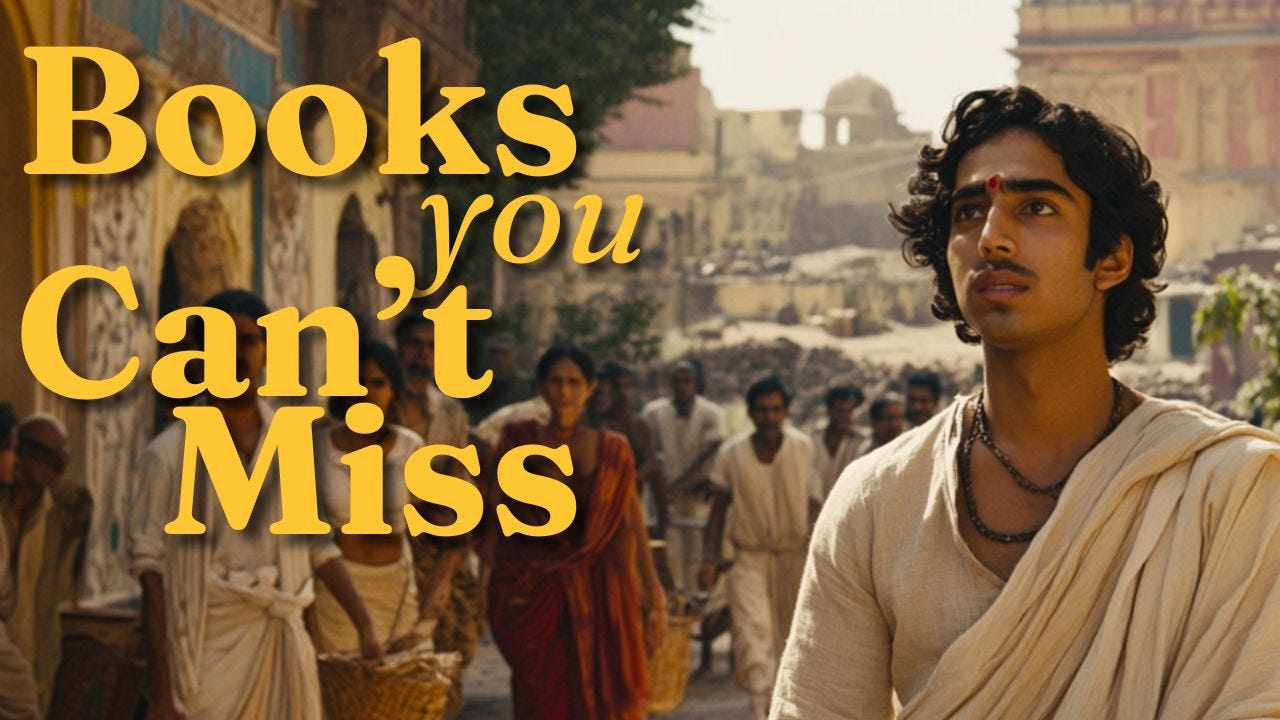
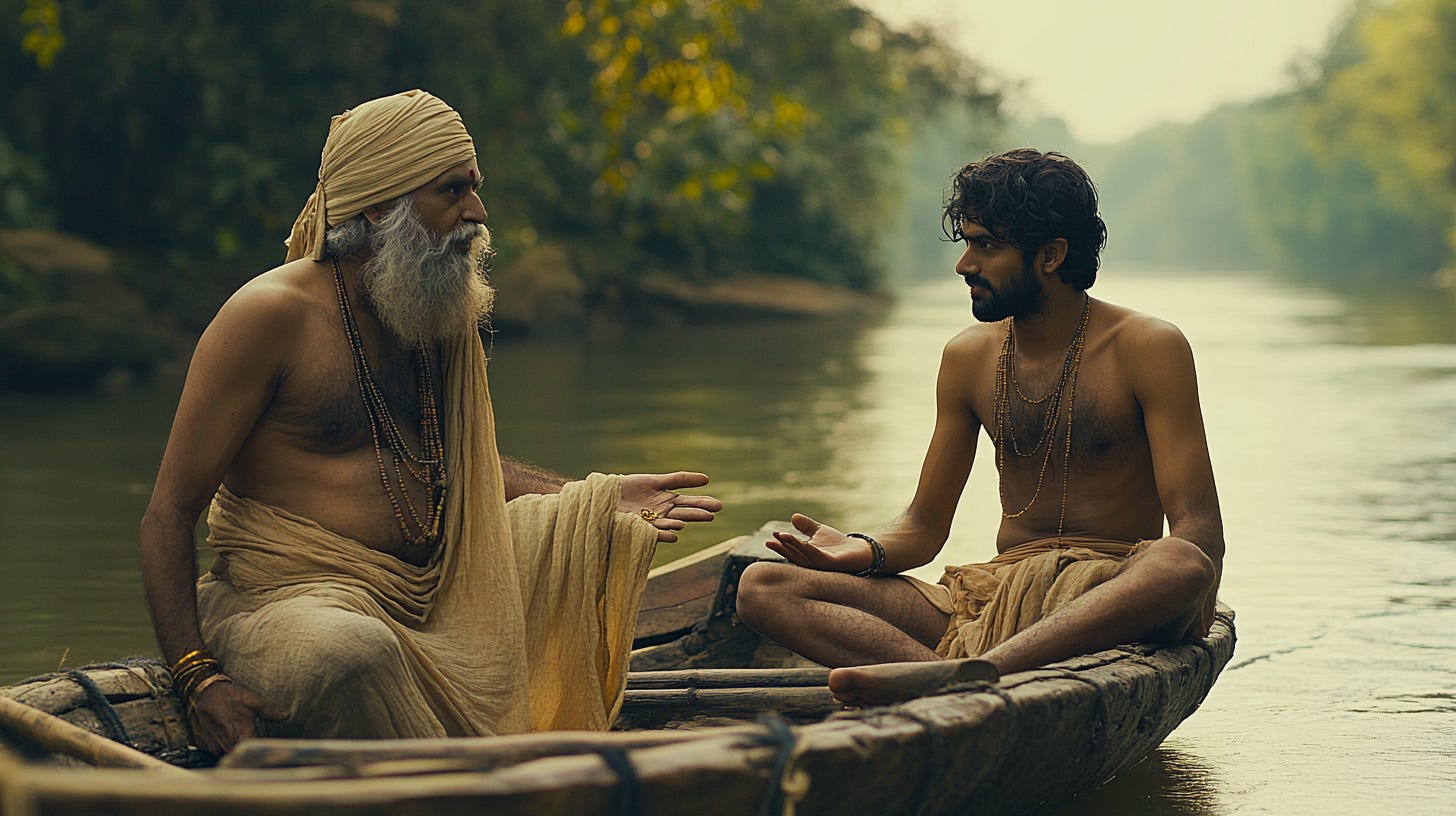
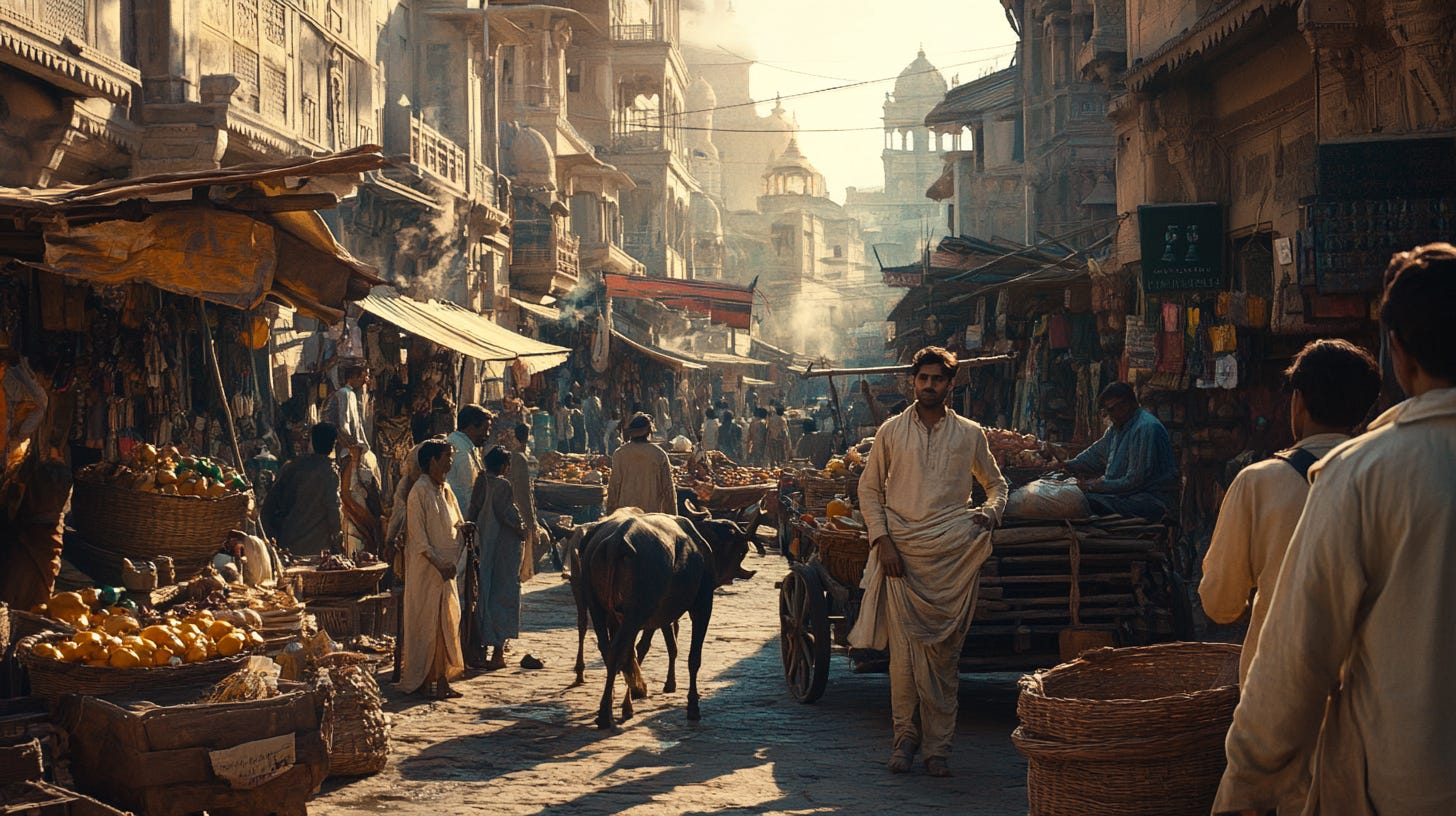
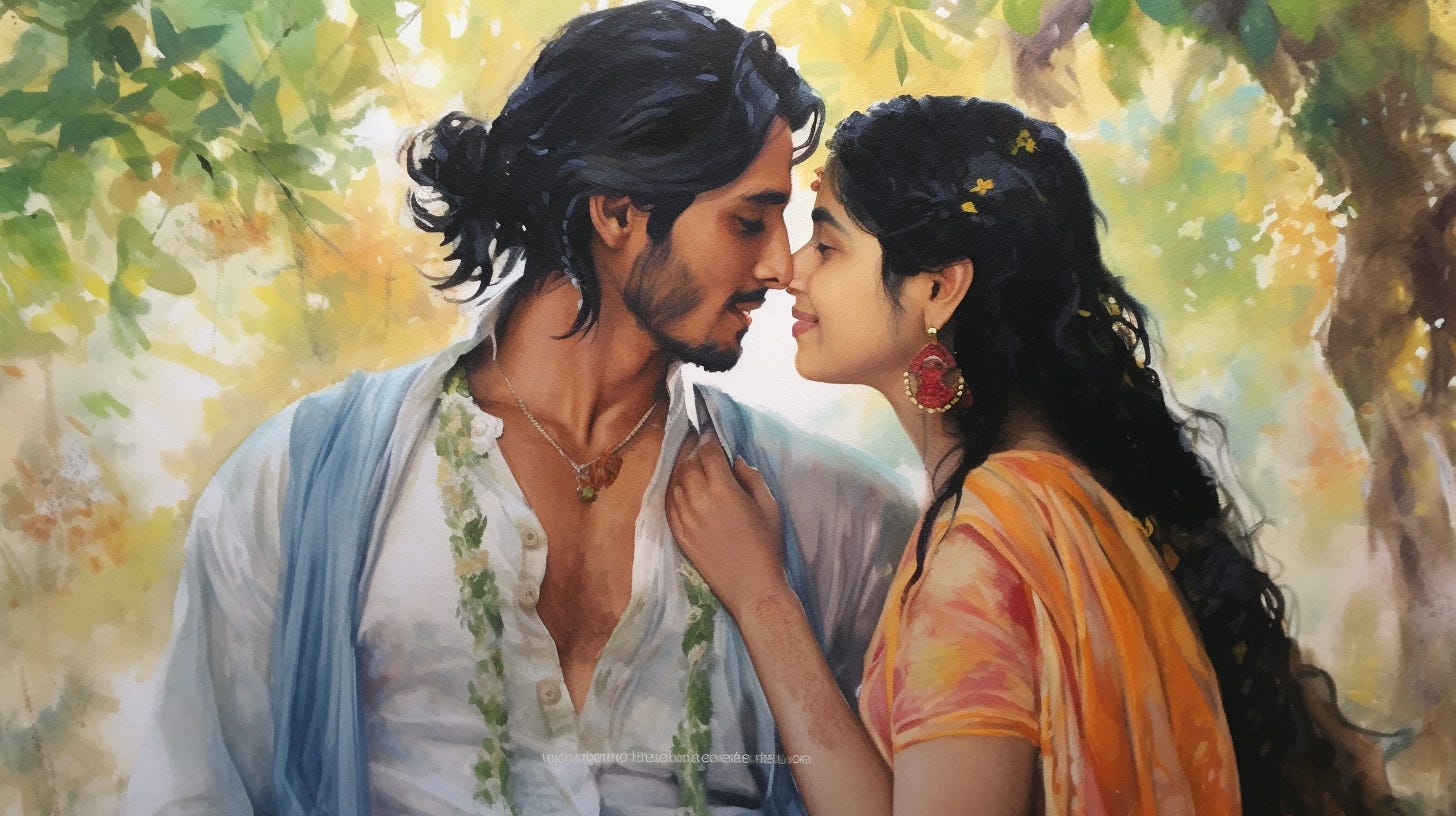

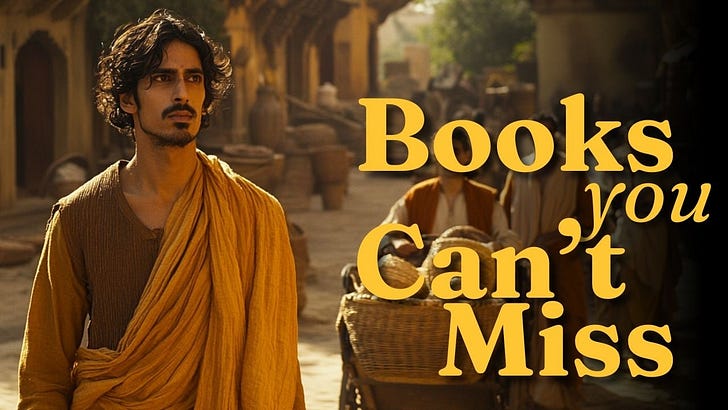



Share this post